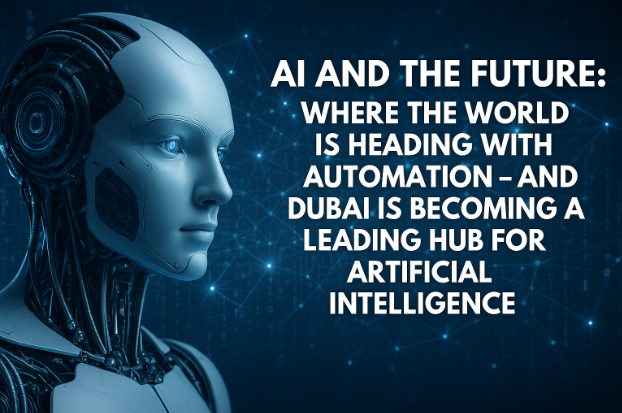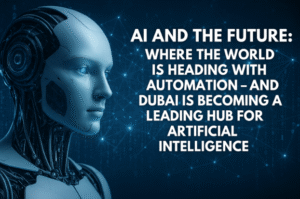Introduction
Artificial intelligence has moved out of labs and become a foundational infrastructure layer of the economy: from finance and logistics to healthcare, energy, education, and the public sector. For business, this means new margins (automation) and new markets (AI-native products). Dubai, by consistently building data policies and a regulatory ecosystem, is becoming a place where these ideas scale faster.
Five AI Megatrends Already Reshaping the Economy
- White-collar automation – AI agent systems take over repetitive processes (KYC/AML, reconciliations, customer ops). Companies cut costs and shorten SLAs.
- AI in software creation – developers act as “orchestrators” of models, products are built faster thanks to generative tools.
- Domain-specific models – specialization (medicine, law, finance) improves quality and compliance, enabling real deployments in regulated sectors.
- Data economy – advantage lies where data is high-quality and lawful. Growing importance of data governance and privacy-by-design.
- AI in public sector – digital services, intelligent transport, traffic prediction, and city management. Improves quality of life and creates B2B demand.
Why Dubai? Deployment Advantages
- Fast regulatory decisions and city-scale pilots (smart city, mobility, security).
- Founder-friendly policy: licensing, grants/challenges, access to public institutions as first clients.
- Data ecosystem: standardized public-private data sharing, cooperation between universities, tech firms, and administration.
- Capital and demand: private capital seeks projects with real ROI. Dubai favors execution over presentations.
AI and the Labor Market: Real Transformation
- New roles: AI product manager, model risk officer, data governance lead, AI agent operators.
- Reskilling: shifting skills into higher-value roles.
- Ethics and safety: model audits, explainability, bias control, and regulatory compliance (especially in finance and healthcare).
Risks and How to Manage Them
- Data quality and hallucinations – requires validation processes and A/B testing.
- Privacy – models must be trained/deployed in line with local regulations, with on-premise deployment options.
- Shadow AI – deployments outside IT control carry compliance risks. Requires clear policies and model registries.
Mapping Opportunities for Founders and Investors
- GovTech/CityTech – ticketing, identification, traffic prediction, energy optimization in buildings.
- FinTech/RegTech – KYC/AML, transaction monitoring, back-office agents, legal documents.
- HealthTech – triage, clinical assistance, image analysis, personalized therapy.
- Travel & Hospitality – dynamic pricing, personalization, occupancy and service management.
- Real Estate/Construction – generative design, scheduling, quality control, defect prediction.
How to Design AI Deployments in Dubai – Practical Framework
- Use case selection: measurable KPI (time, costs, conversion, NPS), defined process owner.
- Data: sources, legality, real-time availability, retention policy.
- Model: tech choice (own model vs. API), governance, and MLOps.
- Security: access control, encryption, audit.
- Rollout: pilot (4–8 weeks), iteration, scaling.
Summary
AI is not hype – it’s a new layer of value creation. Dubai, with its decision-making speed and “make it happen” culture, gives companies a twice shorter learning curve than most jurisdictions. For founders and investors, this means a measurable competitive advantage in P&L.




